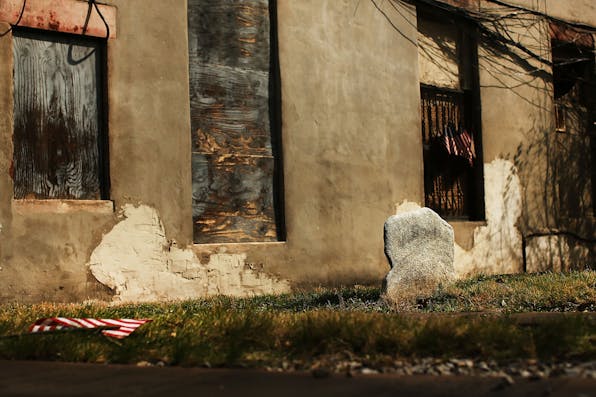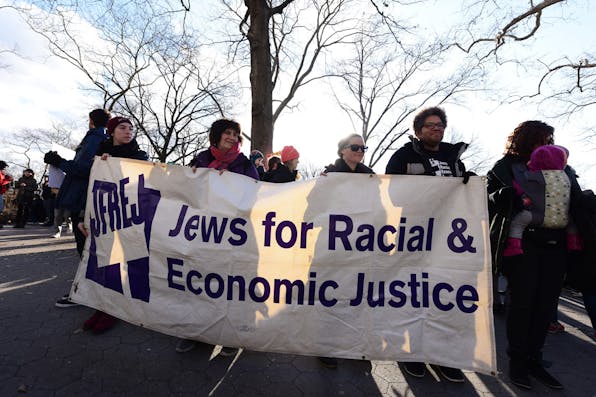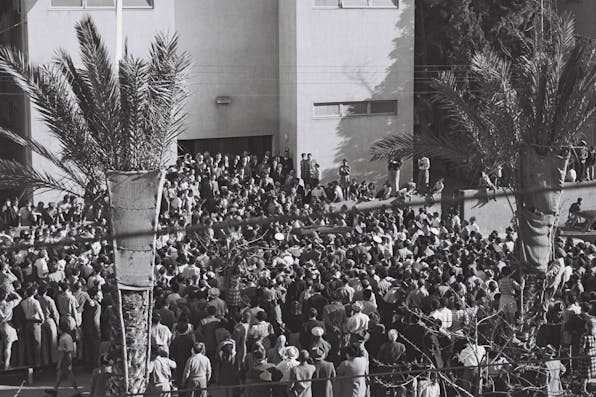
May 15, 2017
The Vanishing of the Jewish Collective
Growing numbers of American Jews care about Israel only to the extent that Israel validates their own self-image. Israelis feel much the same way about them.
I fully agree with Daniel Gordis (and with Elliott Abrams in his earlier essay in Mosaic) that it is putting the cart before the horse to ascribe American Jewry’s growing distance from Israel to Israel’s perceived moral failings, whether vis-à-vis the Palestinians or anything else. There are indeed Israeli policies toward the Palestinians that deserve to be criticized by anyone who cares about human rights, as many American Jews do. But if Jews like Hasia Diner cared as much about Israel, they would couch their criticism differently. They would express it with more pain and less indignation; they would be more empathic and not so self-righteously condemning; they would seek to understand the reasons for Israel’s behavior even if they found it unjustified; and above all, they would continue as Jews to identify as strongly as ever with Israel as a Jewish state. They would go on feeling that it is their state despite their reservations about its conduct. The fact that they do not feel this way has less to do with Israel’s shortcomings than with their own attenuated sense of Jewish peoplehood, the reasons for which Gordis discusses cogently.
Growing numbers of American Jews care about Israel only to the extent that Israel validates their own self-image, and have no use for it, or turn against it, when it doesn’t. And yet, in all fairness, are most Israelis any different in their attitude toward American Jews? Apart from American Jewry’s support for Israel, do they take an interest in it, bother to become knowledgeable about its history and institutions, know anything about its religious and intellectual life, make an effort to understand it, or worry about its future? It, too, exists for them only instrumentally, to the extent that they and their interests exist for it. If the rampant assimilation of American Jews alarms them at all, this is only because they fear a consequent weakening of Israel’s political base in the United States, not because the vanishing of Jews in the Diaspora is of concern to them per se. And although they do on the whole have the sense of Jewish peoplehood that so many American Jews lack, they tend to think of Israel, and of Diaspora identification with it, as this peoplehood’s only meaningful expression.
There is of course, as Gordis observes, one major exception to this rule: the religiously traditional communities of both countries, which are conscious of a bond between them and of the ideal of a bond among all Jews that once used to be called klal yisra’el, the Jewish collective. Perhaps these communities will eventually set the tone for Israeli-American Jewish relations, as Gordis, while rightly cautioning against blindly extrapolating from current demographic trends to the future, contemplates their doing. Meanwhile, however, most Israelis and American Jews will continue to drift farther apart. And one additional reason that they will do so, besides those enumerated by Gordis, is that they will have less in the way of shared origins. For much of the 20th century, the Jews of America and the Jews of Israel had the same East-European nativity, parents, or grandparents. Now, these European roots have receded into the past—and with them, one more link between the two groups.
Responses to May ’s Essay

May 2017
The Vanishing of the Jewish Collective
By Hillel Halkin
May 2017
How a Changing American Liberalism Is Pulling American Jews away From Israel
By Evelyn Gordon
May 2017
How the Ebb-and-Flow of American Politics Affects American Jewish Attitudes toward Israel
By Jordan Chandler Hirsch
May 2017
Why the American Jewish Distancing from Israel Is So Heartbreaking
By Dr. Daniel Gordis